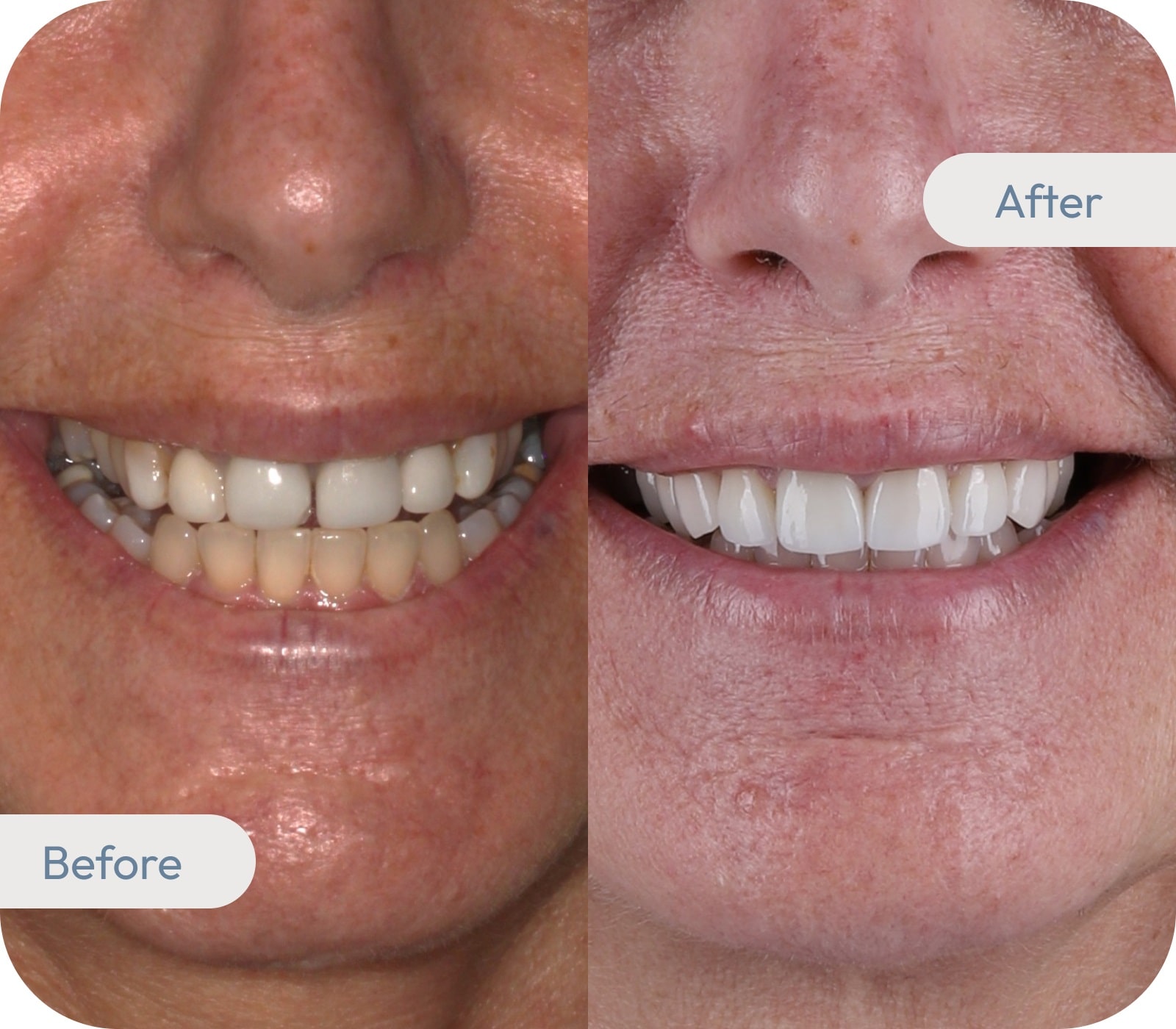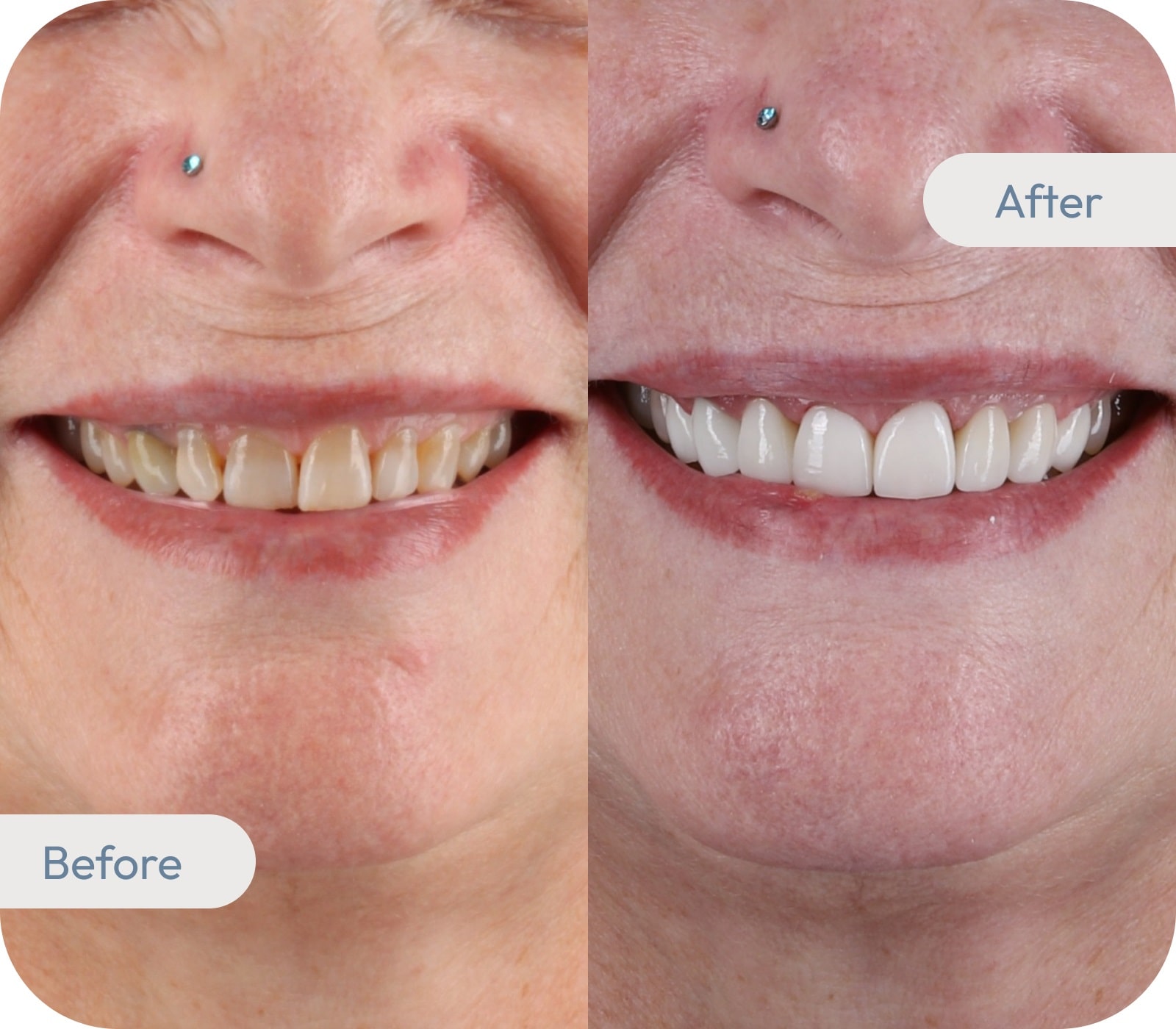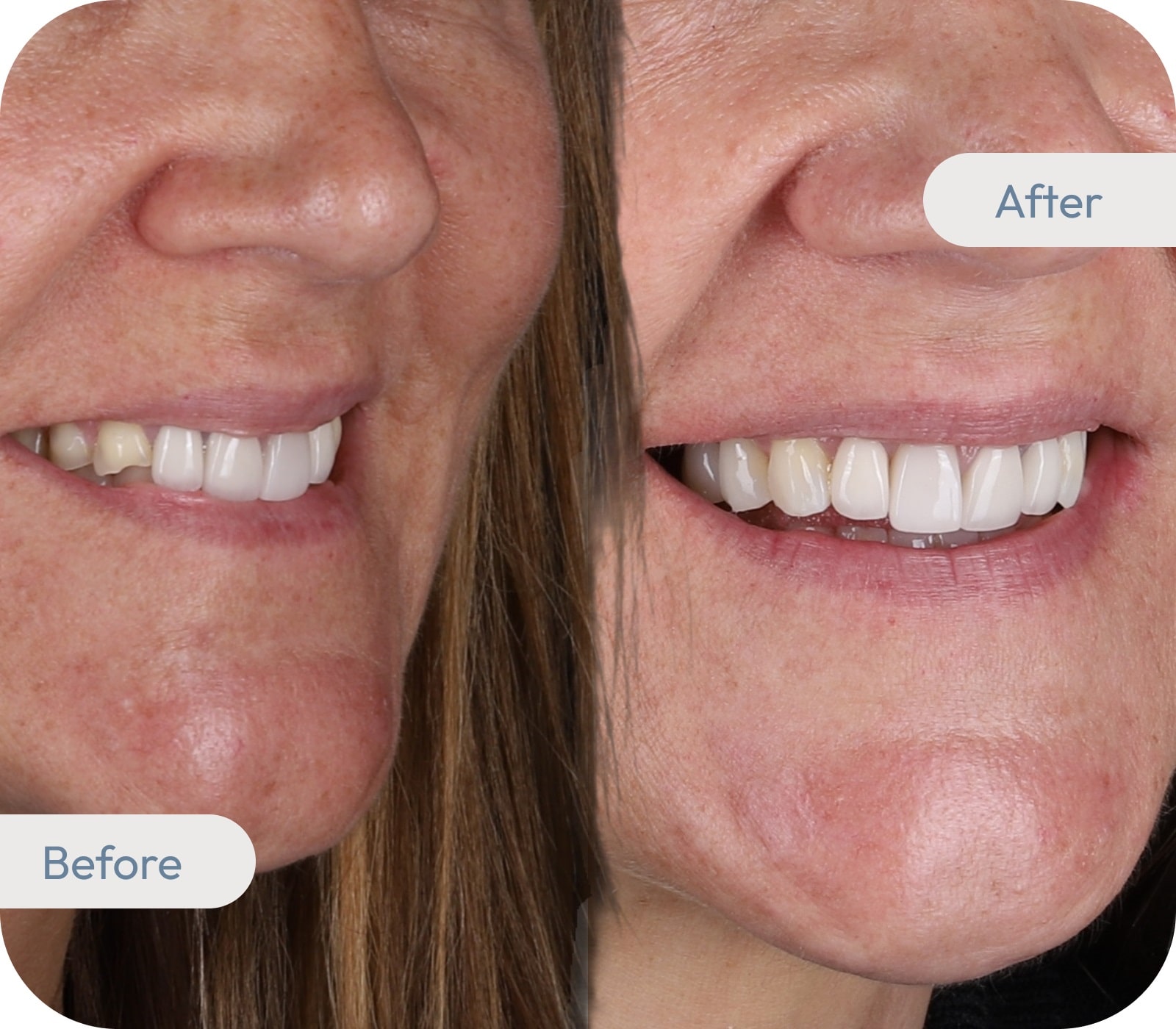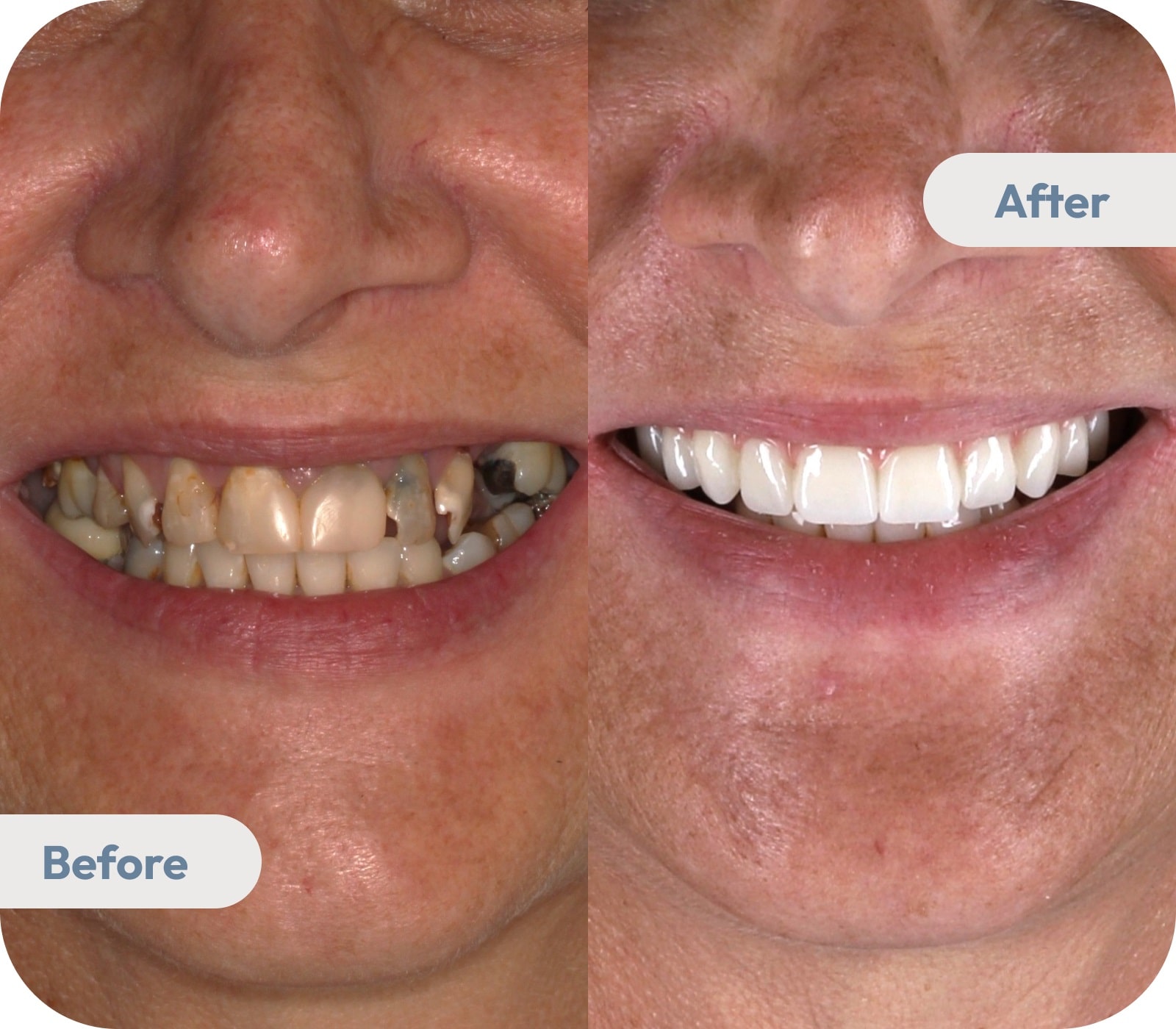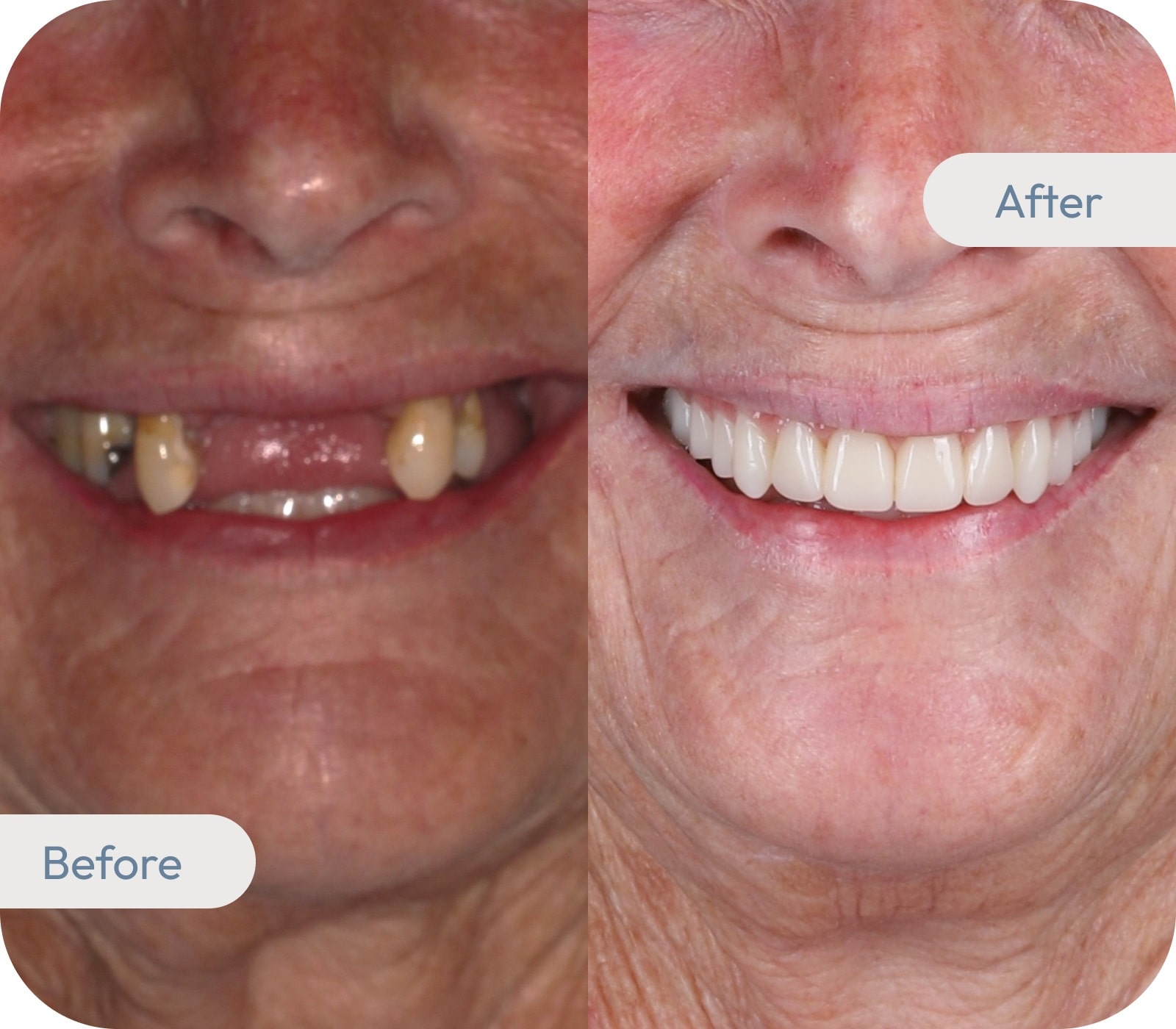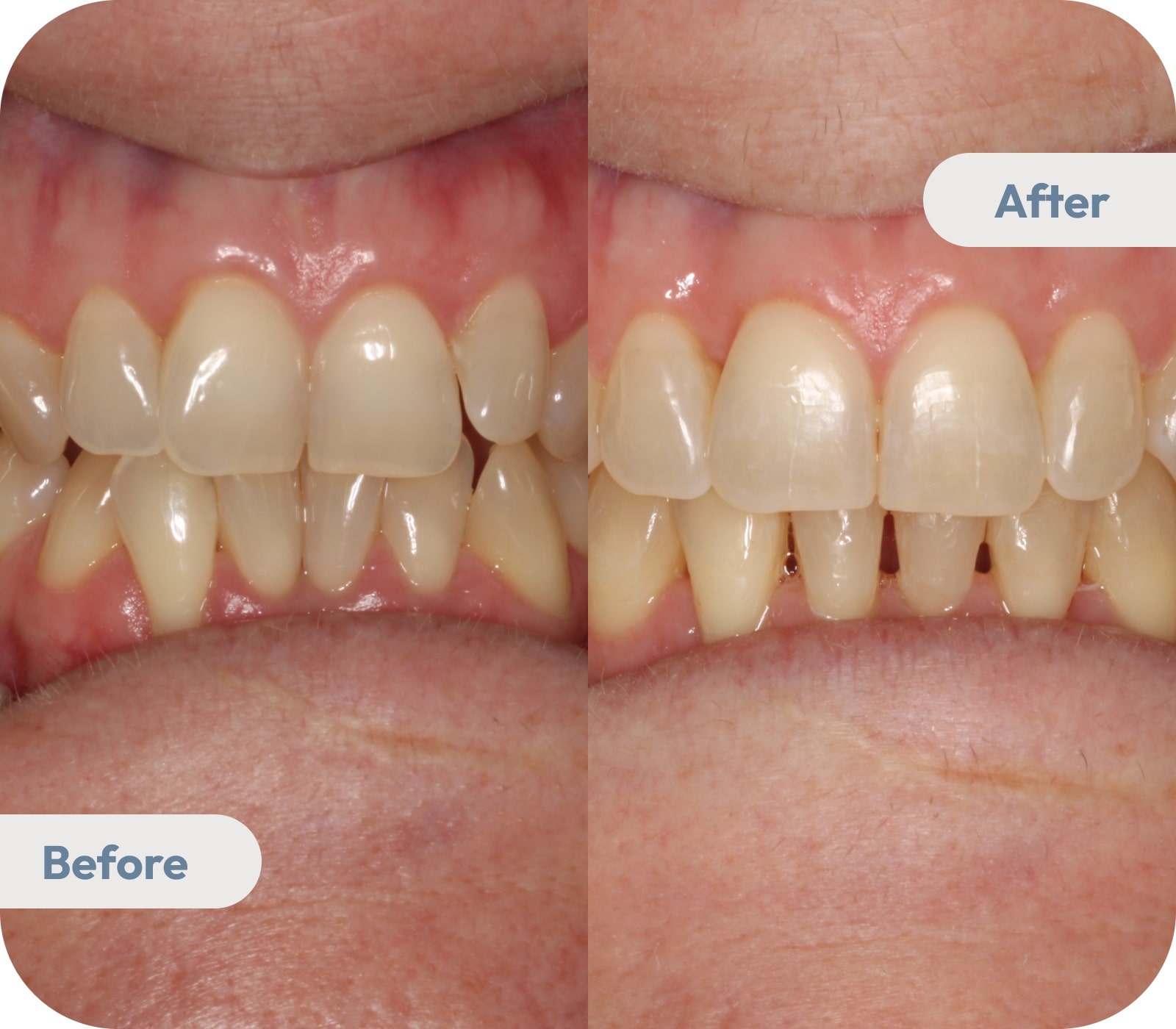Feel More Comfortable Visiting Us
Get Help With Dental Anxiety in Bunbury
We aim to support patients with dental anxiety by providing a professional, patient-centred environment. Our care strategies may help you feel more at ease during visits.

Managing Dental Anxiety with Professional Care
Many people feel anxious about visiting the dentist, often due to past experiences or fear of pain. This anxiety can prevent regular checkups and affect long-term oral health. At Eversmile Dental, we take the time to listen and explain each step clearly, proceeding at a pace that suits your needs. Our approach is designed to help you feel more comfortable and reduce uncertainty during your visit.
How Eversmile Dental Helps Anxious Patients in Bunbury
- Calming EnvironmentThe clinic provides quiet waiting areas and a serene environment that aims to help patients feel at ease upon arrival. Our child-friendly team creates a respectful and welcoming space for all patients, including young children.
- Clear CommunicationOur team explains each step in clear, simple language that is tailored to the patient’s understanding. Children are introduced to care using “tell-show-do” techniques and positive reinforcement, which may help them feel more involved and at ease during treatment.
- Patient-Centred ApproachAppointments are conducted at a pace that suits each patient, allowing for breaks when needed. Children’s emotional well-being matters as much as their oral health, and they can bring comfort items like headphones or blankets.
- Sedation DentistrySedation options may be available for suitable adults or older children. These are offered following a thorough assessment when anxiety significantly affects the ability to receive care.
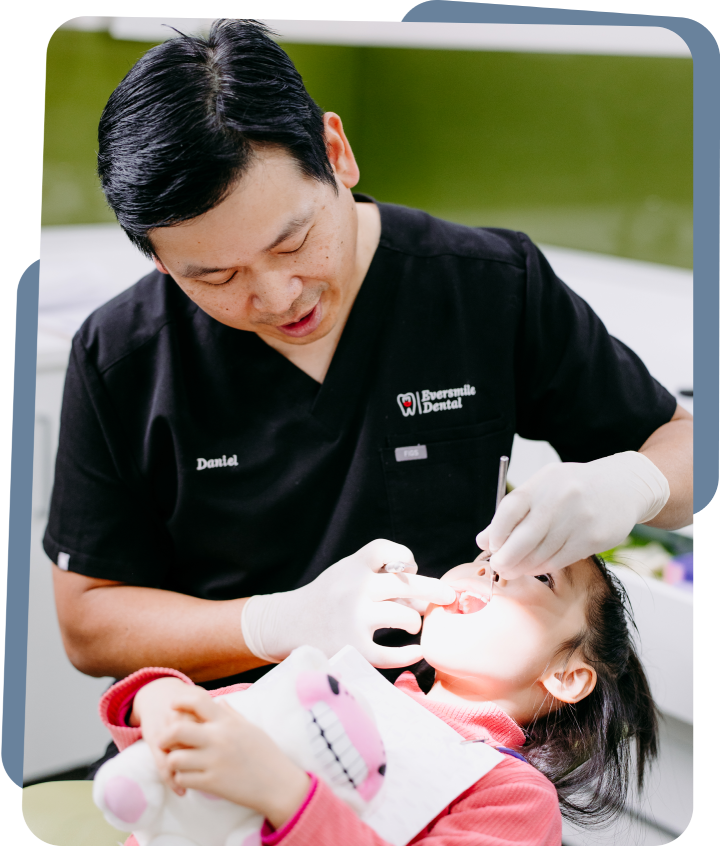
We Offer Sedation Options for Anxious Patients
At Eversmile Dental, sedation options may be considered for patients with significant dental anxiety. All sedation is provided only after a thorough consultation and assessment by a registered dentist to determine whether it is clinically appropriate. Individual needs and responses vary, and our team will explain any recommended options as part of your personalised care plan.
Start with a Dental Consultation in Bunbury
Are you ready to prioritise your oral health? Book a consultation to discuss your oral health needs and treatment options.

Smile Gallery – Before and After Treatment Examples
Explore real treatment outcomes in our gallery. These before-and-after photos show actual patients of Eversmile Dental, displayed with their consent. Outcomes vary between individuals, and results are not guaranteed. Images are unedited and taken under comparable conditions to reflect realistic treatment outcomes.
*These images display actual patients of our clinic. Every case is different, and treatment outcomes can vary according to individual conditions and needs.
Why Choose Eversmile Dental
At Eversmile Dental, we’re more than just a dental clinic—we’re your neighbours. Since 2006, we’ve looked after the smiles of Bunbury families, providing up-to-date dental care with a focus on patient communication and comfort. Here’s what makes us different.
-
- Proudly Bunbury Locals
- We don’t just work in Bunbury—we call it home. We raise our kids here, support local schools, and shop at the same weekend markets. We’re part of the fabric of this town, and we’re deeply connected with the people we serve. When you visit Eversmile Dental, you’ll be cared for by dentists who are part of the Bunbury community.
-
- Serving Since 2006
- Founded by Dr. Daniel Tham in 2006, Eversmile Dental has been part of Bunbury for nearly two decades, providing care for local families. We’re proud of our history and even more excited about where we’re heading as we continue caring for generations of local families.
-
- Dental Care for All Ages
- From a toddler’s first visit to helping grandparents maintain healthy gums, we tailor care for every age. We offer flexible appointment options and a supportive approach to make family visits easier. Our goal is to create a welcoming environment where dental care feels familiar and approachable.
-
- Personalised Care Plans for Your Needs
- You’re not just a number. At Eversmile Dental, we listen carefully, explain your options clearly, and work with you to create a plan that aligns with your goals. Whether you’re nervous, curious, or just want a second opinion, we’ll guide you with open communication and informed choices.
-
- Our Commitment to Professional Standards
- Honesty, integrity, and professional responsibility guide our care at Eversmile Dental. We clearly explain your treatment options and give you the opportunity to make informed choices without pressure. Our focus is on clear communication, professional advice, and delivering dental care in accordance with recognised standards.
-
- Modern Technology for Accuracy in Diagnosis and Treatment
- We’ve invested in modern dental technology, like 3D scanners, CBCT imaging, and EMS Airflow. Why? These tools assist with diagnosis and treatment planning in dental care.
Frequently Asked Questions
This section covers helpful information about dental anxiety. It explains what to expect and how we support you during appointments.
How can I calm my nerves before a dental visit?
Feeling nervous before a dental visit is common, and you’re not alone. There are practical strategies that may help some people feel more at ease during appointments. While every person’s experience is different, the following approaches could make your visit feel more manageable:
- Practise Slow, Deep Breathing: Taking slow, deep breaths may help regulate your body’s natural stress response. Try inhaling deeply through your nose for four counts, holding for four counts, and then exhaling slowly through your mouth. Repeating this technique before and during your appointment may help you feel more settled.
- Listen to Music or a Podcast: Bringing your headphones to listen to calming music or a favourite podcast can provide a helpful distraction. Some patients find that this reduces nervous thoughts and makes the waiting period feel more comfortable.
- Book a Morning Appointment: Scheduling your dental visit for an earlier time in the day may help minimise anticipatory stress. Morning appointments are also less likely to be delayed, which can help streamline your experience.
- Discuss Your Concerns with Your Dentist: By letting your dentist know you feel nervous, they can adjust their approach to better suit your needs. They can explain each step, proceed at a slower pace, and provide breaks if needed.
- Bring a Friend or Family Member: Some patients choose to bring a friend or family member for support. Having someone familiar present during your visit may help create a more comfortable environment.
- Use Calming Scents or Comfort Items: Holding a stress ball can provide a simple way to feel more grounded during your dental visit. Some studies suggest that lavender aromatherapy may help reduce anxiety during dental appointments for certain individuals. However, responses can vary, and more high-quality research is needed to confirm its effectiveness.
- Remember, it’s Okay to Take Breaks: If you start to feel overwhelmed, it’s completely normal to ask for a short pause. Short breaks during treatment may help improve comfort for some patients, and your dental team will explain how to communicate this during your appointment.
Dental anxiety affects people in different ways, and there’s no one-size-fits-all approach. Taking small, thoughtful steps — even just having a conversation with your dentist — can be a helpful first move towards more comfortable dental care.
Can I be sedated for dental work?
Yes, sedation may be available for patients who experience significant dental anxiety or who are undergoing complex procedures. It is not routinely provided for all patients, and its use depends on your individual needs, medical history, and the type of treatment being carried out.
If you’re feeling anxious about an upcoming dental visit, sedation may help reduce those feelings and make the experience feel more manageable. However, it’s essential to recognise that not everyone is suitable for sedation, and outcomes can vary. Your dentist will take the time to assess your health, discuss the benefits and risks, and determine whether sedation is a clinically appropriate option for you.
Our Bunbury team will explain any recommended options clearly during your consultation. You’ll have the opportunity to ask questions and make an informed choice based on professional guidance — with no pressure.
All sedation is provided under strict clinical protocols, with patient safety and informed consent as our priorities. If you think sedation may help you feel more at ease during dental treatment, we encourage you to discuss this option with your dentist to determine if it is suitable for your situation.
What is the difference between dental fear and dental anxiety?
Many people use the terms “dental fear” and “dental anxiety” interchangeably, but they describe slightly different experiences. Understanding this difference can help you recognise your feelings and get the support you need. The table below shows the key differences between dental fear and dental anxiety:
Aspect | Dental Fear | Dental Anxiety |
Nature of the Response | Dental fear is a sudden reaction to a specific trigger, such as seeing a needle or dental tools. It often happens during treatment when certain sights, sounds, or sensations feel overwhelming or uncomfortable. | Dental anxiety is a general feeling of nervousness or worry about visiting the dentist. It can occur even when there is no immediate threat or reason for concern. |
Point of Occurrence | It often happens “in the moment” and triggers a fight-or-flight response, such as a racing heart or sudden panic. | Anxiety can build up over time, sometimes days or weeks before an appointment, leading to avoidance of dental care. |
Cause or Trigger | Fear usually has a clear cause, such as a past painful experience or fear of pain. | Anxiety may not always have a clear cause. It can be linked to feelings of loss of control, embarrassment, or general nervousness about dental visits. |
Effect on Care | Dental fear is often temporary and can ease once the procedure begins, allowing you to feel more comfortable. As your comfort grows during the visit, these fearful feelings usually become less intense. | Dental anxiety can make it harder to book regular dental visits, even when there’s no pain or urgent problem. |
While dental fear is often linked to specific triggers, dental anxiety is more about ongoing worry and avoidance. Both are common, and it’s okay to feel this way. Support is available to help you feel more comfortable during your dental visits.
Is dental anxiety a mental illness?
Dental anxiety is not classified as a mental illness, but it is recognised as a common emotional response. Many people feel nervous or fearful about dental visits due to past experiences or fear of pain. This anxiety can lead to avoiding appointments, which may affect overall oral health in the long run. A caring dental team can help patients manage this by providing clear explanations and a supportive environment.
While dental anxiety itself is not a medical disorder, severe cases may overlap with phobias or anxiety disorders. It’s essential to address dental fear early to prevent the worsening of oral health problems. Strategies such as a calm setting and appropriate care planning may help make appointments more manageable for some individuals. Every patient is different, and care is tailored to support comfort and informed decision-making.
Will the dentist judge me if I haven’t been in years or have bad teeth?
You will not be criticised for delaying a dental visit, no matter how long it has been since your last check-up. Some patients feel self-conscious, but we understand that life can get busy or that past experiences may influence how you feel about dental care. Our focus is on providing respectful, professional care without judgement.
Issues like missed appointments or dental concerns are more common than many people think, and we aim to approach them with professionalism and understanding. We work with each patient at their pace, and together, we can plan an approach that prioritises your comfort and dental health.
How painful are procedures like fillings or root canals?
Patients feel concerned that dental procedures such as fillings or root canals may be painful. In most cases, local anaesthetics are used to numb the area, which typically reduces or blocks pain during treatment. Some patients report feeling pressure or mild discomfort, which usually subsides once the procedure is complete. After treatment, it’s common to experience temporary tenderness or soreness, and this improves within a few days.
Modern techniques and considerate approaches are used to help you feel as comfortable as possible throughout the procedure. If you’re nervous, your dentist can offer sedation options and explain each step to help you feel more in control. Over-the-counter pain relief is often recommended after treatment to help manage any mild discomfort as you recover. Our goal is to support your oral health while aiming to make your experience as comfortable as possible.
What if I’m too scared to even make an appointment?
It’s completely normal to feel overwhelmed by dental anxiety, even to the point where booking an appointment feels impossible. But there are careful steps you can take to regain control, one small action at a time. Here’s how we can help you take that first step:
- Many People Feel this Way: Fear of the dentist is common, and many people experience the same feelings you’re going through. Acknowledging your anxiety is already a brave first step.
- There’s No Shame and No Judgement: You won’t be criticised for feeling scared or for delaying dental visits. Our team understands that dental fear often stems from past experiences, and we’re here to listen and provide information without pressure.
- Start with a Friendly Conversation, Not an Appointment: If booking a dental visit feels overwhelming, you can begin with a brief phone call. We’re happy to answer your questions, explain what to expect, and offer information at your pace.
- Bring a Support Person if You Wish: You are welcome to bring a friend or family member to your appointment. Some patients find this helpful for added comfort or familiarity during their first visit.
- We Proceed at a Pace That Suits You: You’ll have the opportunity to ask questions, and we will proceed only when you feel ready. Treatment is not rushed, and we respect each patient’s comfort level and decision-making process.
- Care Planning for Patients with Dental Anxiety: Patients with significant dental anxiety may benefit from additional care planning or support strategies. In some cases, sedation may be considered following a thorough clinical consultation and assessment. Your dentist will explain any recommended options, along with their associated risks and benefits, so you can make an appropriate decision based on your individual needs.
Even if making an appointment feels like a huge step, remember — a conversation can be the starting point. We’re here to provide guidance and answer your questions, so you can make an informed choice in your own time.
Why am I so anxious about my teeth?
Feeling anxious about your teeth is more common than you might think. Many people feel anxious about their teeth for different reasons. Understanding these reasons helps you take control of your oral health. Below are some of the most common causes of dental anxiety:
- Past Negative Dental Experiences: If you’ve had a painful or uncomfortable dental visit in the past, it’s natural to feel anxious about future appointments. Bad memories can create a lasting fear, even if the situation has improved.
- Fear of Pain or Discomfort: Many people worry that dental treatments will hurt, especially if they’ve heard stories from others or experienced discomfort themselves. This fear can make even routine checkups feel overwhelming.
- Feeling Embarrassed About Your Teeth: Concerns about how your teeth look or fearing judgement from the dentist can make you hesitant to book an appointment. It’s important to remember that dentists are here to help, not to judge.
- Loss of Control During Treatment: Sitting in the dental chair and not knowing what’s happening can make you feel vulnerable. Feeling not in control is a common cause of anxiety during medical or dental visits.
- Sensitivity to Sounds, Smells, or Sensations: For some people, the sounds of dental tools or the smells of a clinic can trigger strong anxiety responses. These sensory triggers are real and can be managed with the right support.
- Worry About Costs or Treatment Outcomes: Concerns about how much treatment might cost or uncertainty about what procedures will be needed can add to your anxiety. Clear communication about treatment plans and costs helps ease these worries.
Dental anxiety is nothing to be ashamed of. Understanding why you feel anxious is the first step towards getting the right help for your dental care. This awareness can make your future dental visits feel more manageable and less overwhelming.
How do I stop obsessing over my teeth?
Sometimes, thinking too much about your teeth can be a recurring issue and feel difficult to ignore. When that happens, it can be hard to focus on other things that matter to you. These simple steps can help you regain control of your thoughts and ease the constant worry.
- Focus on Daily Care: Maintaining a simple routine of brushing twice a day and flossing once is often enough. Trust that these healthy habits are keeping your teeth clean without the need to overthink every detail.
- Limit Time Spent Checking in the Mirror: It’s easy to get into the habit of checking your teeth too often without even realising it. Setting simple limits, such as checking in the morning and evening, can help alleviate constant worry over your teeth.
- Avoid Comparing Your Smile to Others: Every smile is unique. Comparing your teeth to images online or from other people can lead to unnecessary stress. Focus on your dental health, not unrealistic expectations.
- Talk to Your Dentist About Your Concerns: Sharing your worries with a caring dentist can help you feel more at ease and supported. They can identify any real issues and provide you with honest, professional advice, so you’re not left guessing.
- Be Mindful of Social Media Triggers: Scrolling through photos of overly polished smiles on social media can fuel unnecessary concerns. Remember, many of these images are edited or filtered and don’t reflect real life.
- Practice Relaxation Techniques to Reduce Overall Anxiety: Sometimes, obsessing over teeth is linked to general anxiety. Simple breathing exercises, mindfulness, or even a short walk can help calm your mind and ease obsessive thoughts.
If you’re feeling overwhelmed by constant worry about your teeth, remember you don’t have to face it alone. Reaching out for support and focusing on what you can control is a positive first step.
Book Your Appointment Online or Call Our Bunbury Dental Clinic
Book an appointment with our dentist in Bunbury to discuss your oral health needs. We provide tailored dental treatments and clear information to support informed decisions about your dental care.
